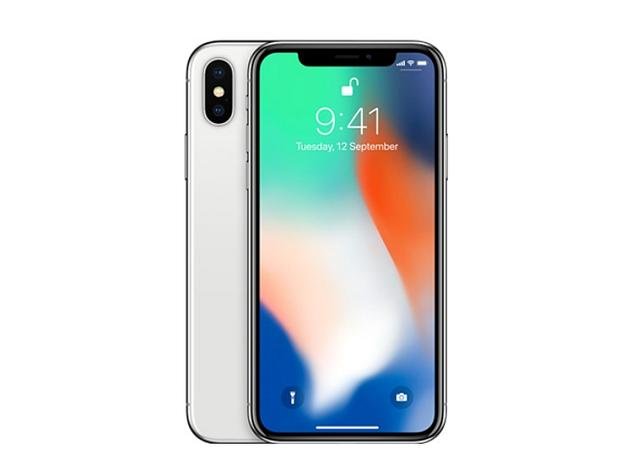You had to be quick to nab an iPhone X.
Preorders for Apple's newest phone began at 12:01 a.m. PT Friday. A few models of the device were still available online for a Nov. 3 ship date, the day it hits stores, for the first 10 minutes. After that, delays started creeping in. AT&T, for instance, wouldn't ship for two to three weeks after the launch date. At the half-hour mark, all models from all US carriers had ship times of four to five weeks.
In the UK and Australia, the wait time is five to six weeks.
In a reverse from previous years, Apple's store app appeared to be down for users for about 10 minutes. In the past, Apple's website hasn't loaded quickly, and only people accessing its iPhone and iPad app were able to preorder devices when sales began.
The iPhone X marks the first major redesign the phone has seen in years. Apple ditched its Touch ID home button and instead added its new Face ID facial recognition in the device. It also integrated a new OLED screen that stretches across the front of the display. The device has another new feature: a higher price. The iPhone X starts at $999, £999 or AU$1,579 for the 64GB model, while the 256GB iPhone X costs $1,149, £1,149 or AU$1,829.
The newly designed iPhone can't come soon enough. More than two-thirds of Apple's sales come from its popular phone, but iPhone sales dropped for the first time last year. Companies, Apple included, haven't been making dramatic changes to their devices, and people haven't been upgrading as often as before and the overall phone market has been slowing down.
The lack of excitement so far is embodied by the lackluster start to the iPhone 8 and iPhone 8 Plus.
By Friday morning, the availability of the iPhone X picked up. AT&T listed a Nov. 3 ship date for the silver 64 GB version of the iPhone X. All models of the iPhone X at Sprint appear available for shipping by launch day as well. T-Mobile said several of its models would ship within a week of the launch.
Last year marked the slowest growth rate for the phone industry since it began, and Apple's iPhone sales dropped for four straight quarters. Total industry shipments rose just 2.5 percent to 1.47 billion, according to IDC, and they should increase only 1.7 percent this year. The firm expects phone shipments to keep growing through 2021, but the real boom days are over.